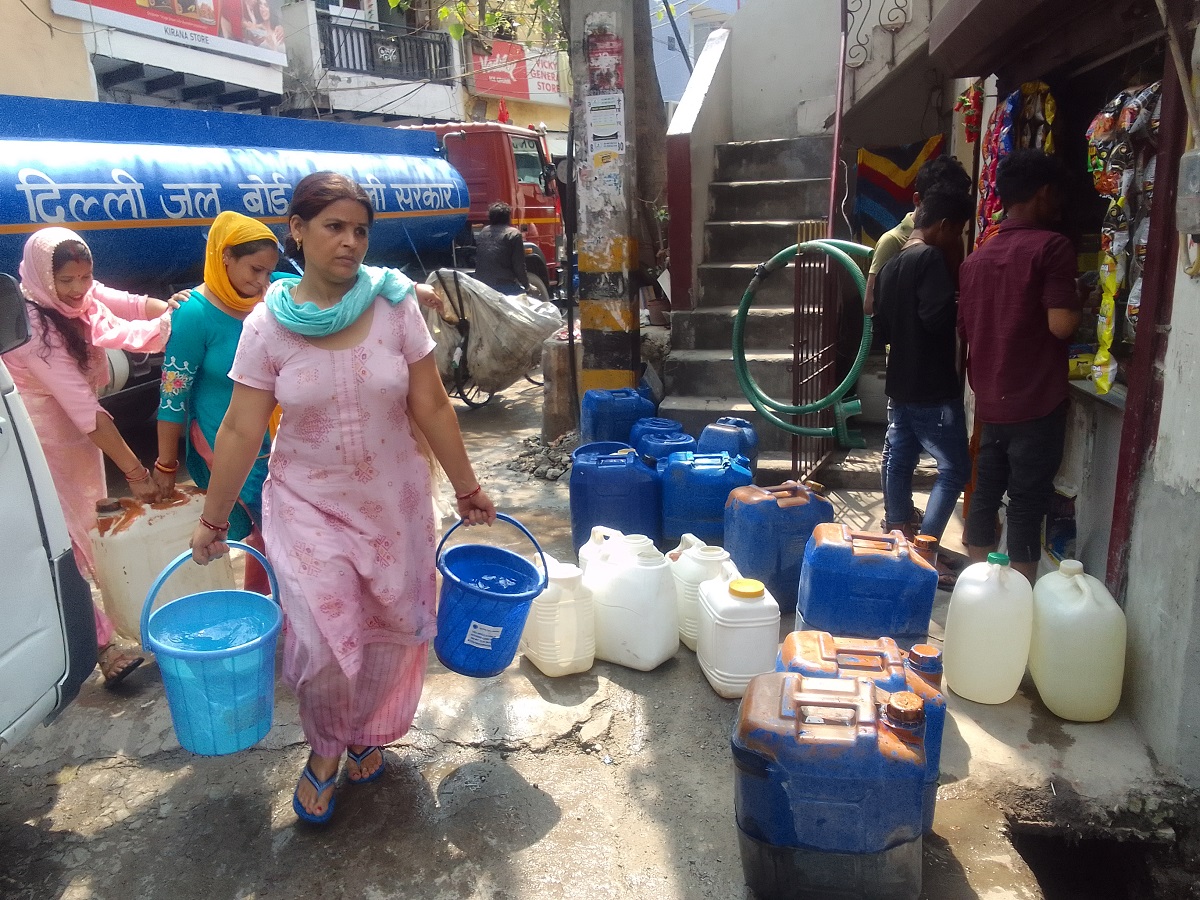Delhiites are likely to face water shortage after the state government on Thursday decided to cut its supply by 25 per cent following the closure of three water treatment plants — Wazirabad, Chandrawal and Okhla – due to the rising levels of water in the Yamuna.
Chief Minister Arvind Kejriwal visited the Wazirabad water treatment plant and informed the media about the impending shortage in supply of water.
“Delhi is likely to face water shortage for one or two days,” he said in a video uploaded on Twitter.
“Water has entered pumps and machines. We can dry the machines only when the water level recedes, because if we run it without drying it, it can lead to accidents due to electric shock. The water supply will be restored only after that. The tubewells that used to be operated have also failed.”
He admitted that the 25% reduction is huge. “The public is likely to face some difficulties.”
In an earlier tweet, Kejriwal had announced the closure of the Wazirabad, Chandrawal and Okhla water treatment plants due to the rising Yamuna level.
“Due to rising water level in Yamuna, Wazirabad, Chandrawal and Okhla water treatment plants have to be closed. Due to this there will be water problem in some areas of Delhi. As soon as the Yamuna water recedes, we will try to start them as soon as possible,” he tweeted in Hindi.
The Delhi Disaster Management Authority (DDMA) meeting on the flood situation chaired by LG VK Saxena also discussed the problem.
The Yamuna water levels reached 208.62 metres at 1 pm on Thursday, causing difficulties for people. The water levels have also led to the banning of heavy goods vehicles and termination of inter-state buses.
The water level at the Old Railway Bridge rose to 208.48 metres by 8 am on Thursday. It is expected to rise further, according to the Central Water Commission, which has termed it an “extreme situation”.





